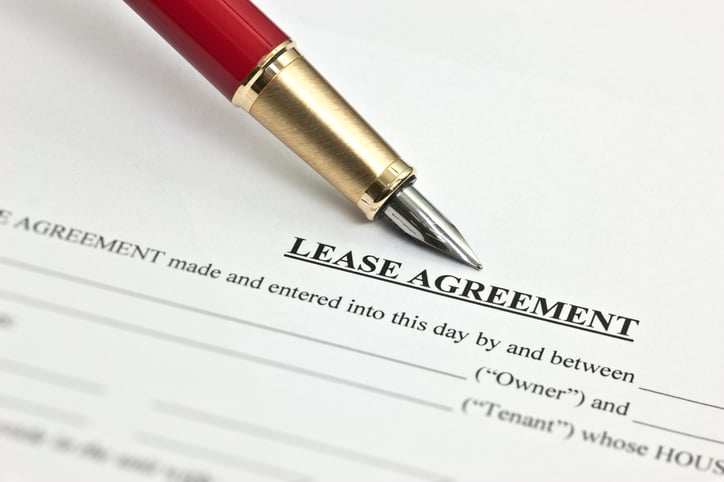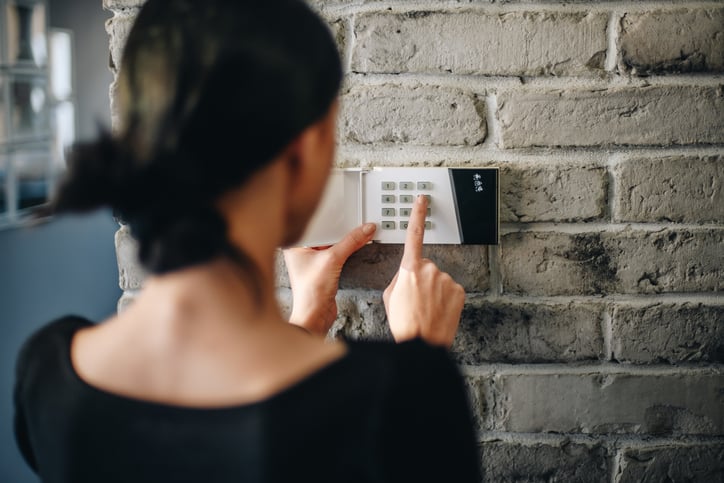Investing in rental real estate can potentially be very profitable, and the better landlord you are the bigger your investment returns will be over the long run.
Here are 20 essential tips for landlords to help your rental property business flourish.
1. Owning rental property is a business
Even if you’re investing in real estate to generate some extra passive income, remember that you’re in business to provide a service and make money. Know the rules and regulations, treat everyone you deal with fairly, and keep your eye on the bottom line.
2. Understand your income & expenses
Be realistic about the gross income you’ll collect by factoring in rental income lost to vacancies or bad debt. Use an online financial rental management system like Stessa to make sure you’re accurately tracking income and recording every expense you’re entitled to.
3. Conduct a thorough rent analysis
Take the guesswork out of setting a fair market rent for your property by conducting a thorough rent analysis. Online resources for researching rent comparables include Rentometer and Zillow.
4. Know your local landlord-tenant laws
When you own rental property you’ll need to comply with the local and state landlord-tenant laws and fair housing laws. Even making an honest mistake can result in thousands of dollars in fines. Speak with a real estate attorney or consult with your local property manager to make sure everything that you do is legal.
5. Consider making your rental pet-friendly
Nearly 90% of renters are pet owners, according to the American Apartment Owners Association. By turning your property into a pet-friendly rental, you’ll reach a much larger pool of qualified tenants. Landlords who rent to tenants with pets can also increase income by charging pet fees and deposits, and extra monthly pet rent.
6. Market vacancies with a rental listing service
The days of putting a “For Rent” sign in the front yard and waiting for the phone calls to come in are long gone. Today, online tools are the #1 way renters search for a new home. Rental listing sites such as Apartment Finder, Homes.com, and Rent.com are visited by millions of qualified renters each and every month.
7. Practice thorough tenant screening
The problem with going by your gut instinct when you interview prospective tenants is that you’re more likely than not to get indigestion. A thorough tenant screen process includes a credit report, criminal background check, rental history report, employment verification, and speaking directly with a prospective tenant’s previous landlords.
Check out online tenant screening services such as Avail, E-Renter, and RentPrep.
8. Use a written lease agreement
While verbal agreements may be legal in some states, they’re much more difficult to enforce than a written lease agreement signed by the landlord and the tenant. A good lease agreement always includes important information such as the amount of rent and when it is due, late fees, tenant and landlord responsibilities, and the amount of the security deposit.
9. Collect a security deposit
Always collect the maximum security deposit a landlord can charge in your state. Requiring a large security deposit serves as an extra tenant screening tool, and protects you if there is damage caused by the tenant beyond normal wear and tear. The legal resource website Nolo.com has a chart of security deposit limits, state-by-state.
10. Require renters insurance
Also known as tenant insurance, renters insurance is a policy tenants get from their insurance company. Renters insurance provides coverage for personal possessions, liability protection, and additional living expenses if they have to temporarily move while their rental is repaired.
Premiums normally cost the tenant only a few dollars per month, but be sure to consult with your attorney or property manager before you make renters insurance mandatory for your tenants.
11. Offer online rent collection
The faster you collect the rent each month, the sooner you’ll be able to pay your own bills and operating expenses and deposit the extra profits in the bank.
Online rent payment tools such as Zillow Rental Manager and PayRent let tenants schedule automatic payments each month, provide you with a dashboard for monitoring real-time rent receipts, and help you avoid having to charge a good tenant a late fee because they forgot to pay the rent.
12. Play by the rules
The lease agreement signed between a landlord and tenant is a legally binding, enforceable contract. If you selectively enforce the rules, some tenants will take advantage of you by not paying the rent late month after month. Landlords have to play by the rules as well, including giving proper notice before entering the property and keeping the rental property in a habitable condition.
13. Do routine maintenance
Landlords should promptly respond to tenant maintenance requests, and also conduct periodic property inspections to catch little problems that the tenant may miss. When tenants know you’re serious about keeping your property in top condition, they’ll be more likely to take care of your place as well.
Routine and seasonal maintenance items include semi-annual service of the HVAC, replacing air filters, and making sure that smoke detectors are functioning properly.
14. Keep your rental safe for tenants
Prevent thieves from targeting your property and your tenants by making sure all outside lighting is working and that the landscaping is neat and trim. Change the door locks each time the tenant turns over, and double-check that all windows have security locks.
Installing smart locks that allow your tenant to unlock the door with voice, keys, or fingerprints can increase the security of your property and may also justify charging a slightly higher monthly rent.
15. Always communicate
Although everybody is busy nowadays, it’s far too easy to misinterpret a text message or email. Every now and then, communicate the old-fashioned way by picking up the phone and speaking with your tenant.
Open lines of communication can help make tenants feel appreciated, and increase the likelihood that they will renew their lease from one year to the next, even if you ask for an annual rent increase.
16. Use property management software
Free property management software like Stessa helps you to manage tenants, create financial reports to monitor rental property performance, and automatically record income and expenses by syncing your bank account.
The best online rental management software systems also show you how to maximize profits through smart money management and personalized recommendations based on your unique investment strategy.
17. Hire a professional property manager
Experienced rental property owners view the monthly management fee as an investment and not an expense. In exchange for a monthly management fee of about 10% of the gross monthly rent, a property management company takes care of the day-to-day details such as tenant screening and leasing, rent collection and lease enforcement, and maintenance and vendor management.
You can ask fellow investors for a property management referral, or connect with Roofstock preferred property managers.
18. Maximize tenant retention
Tenant turnover occurs when one tenant moves out and a new tenant moves in. While every rental property is different, tenant turnover costs can range anywhere from $1,000 to $5,000. Good business sense says that the better your tenant retention, the more potential profit your rental property will generate.
Some of the best tips for maximizing tenant retention include writing a letter of appreciation to thank the tenant for paying the rent on time, asking the tenant to renew their lease 90 days before it ends, and offering incentives such as an appliance upgrade or professional cleaning every year the lease is renewed.
19. Make smart renovations
When updating your rental, focus on renovations that will increase long-term property value and help justify a slightly higher monthly rent. Replacing older bathroom tile, putting in new carpeting, installing energy-efficient windows, and updating the kitchen with stainless steel appliances can all generate a high monthly rental income while increasing your depreciation expense.
20. Store documents online
Keeping digital records of items such as rent deposit receipts, lease agreements, move-in and move-out inspection reports, and detailed copies of landlord-tenant communication help keep your financial statements accurate, ensuring you’re taking every possible deduction come tax time.
Just as importantly, you’ll have the backup you need if you’re ever audited or are involved in a legal dispute. Stessa uses bank-grade security to protect your data, so you can safely organize and store all of your real estate documents online.
Final Tips
Landlords need to be familiar with all facets of the rental real estate business. Understanding marketing and tenant screening, leasing and rent collection, financial management, repairs and maintenance, and landlord-tenant laws are some of the many skills required to be an effective landlord.
There’s no doubt that being a good landlord takes a lot of time, effort, and practice. But the longer you invest in rental property the better a landlord you’ll become, and the more profitable your real estate investments can be.















